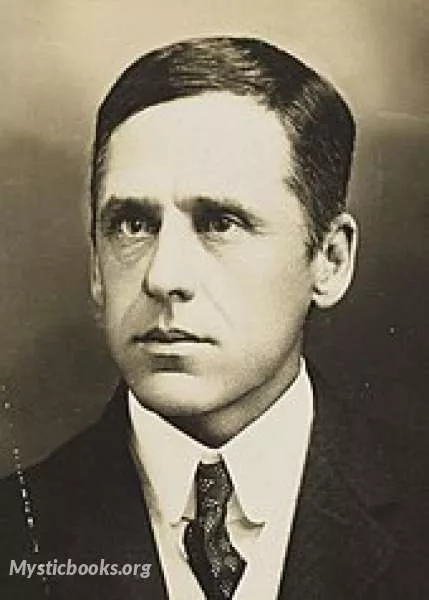
Timeline
Title
Country/Nationality
Andrew Barton Paterson
Andrew Barton "Banjo" Paterson was an Australian bush poet, journalist and author. He wrote many ballads and poems about Australian life, focusing particularly on the rural and outback areas, including the district around Binalong, New South Wales, where he spent much of his childhood. Paterson's more notable poems include "Clancy of the Overflow" (1889), "The Man from Snowy River" (1890) and "Waltzing Matilda" (1895), regarded widely as Australia's unofficial national anthem.
Andrew Barton Paterson was born at the property "Narrambla", near Orange, New South Wales, the eldest son of Andrew Bogle Paterson, a Scottish immigrant from Lanarkshire, and Australian-born Rose Isabella Barton, related to the future first Prime Minister of Australia Edmund Barton. Paterson's family lived on the isolated Buckinbah Station near Yeoval NSW until he was five when his father lost his wool clip in a flood and was forced to sell up.
Paterson's early education came from a governess, but when he was able to ride a pony, he was taught at the bush school at Binalong. In 1874 Paterson was sent to Sydney Grammar School, performing well both as a student and a sportsman. During this time, he lived in a cottage called Rockend, in the suburb of Gladesville. The cottage is now listed on the Register of the National Estate and New South Wales State Heritage Register. He left the prestigious school at 16 after failing an examination for a scholarship to the University of Sydney.
Paterson was a law clerk with a Sydney-based firm headed by Herbert Salwey, and was admitted as a solicitor in 1886. In the years he practised as a solicitor, he also started writing. From 1885, he began submitting and having poetry published in The Bulletin, a literary journal with a nationalist focus. His earliest work was a poem criticising the British war in the Sudan, which also had Australian participation. Over the next decade, the influential journal provided an important platform for Paterson's work, which appeared under the pseudonym of "The Banjo", the name of his favourite horse. As one of its most popular writers through the 1890s, he formed friendships with other significant writers in Australian literature, such as E.J. Brady, Harry "Breaker" Morant, Will H. Ogilvie, and Henry Lawson. In particular, Paterson became engaged in a friendly rivalry of verse with Lawson about the allure of bush life.
Paterson became a war correspondent for The Sydney Morning Herald and The Age during the Second Boer War, sailing for South Africa in October 1899. His graphic accounts of the relief of Kimberley, surrender of Bloemfontein (the first correspondent to ride in) and the capture of Pretoria attracted the attention of the press in Britain. An untouched box of chocolates, created by the British company Cadburys for Queen Victoria as a 1900 New Year's gift for troops serving in South Africa, was discovered in Paterson's papers at the National Library of Australia in 2020. In 1908 after a trip to the United Kingdom he decided to abandon journalism and writing and moved with his family to a 16,000-hectare (40,000-acre) property near Yass.
In World War I, Paterson failed to become a correspondent covering the fighting in Flanders, but did become an ambulance driver with the Australian Voluntary Hospital, Wimereux, France. He returned to Australia early in 1915 and, as an honorary vet, travelled on three voyages with horses to Africa, China and Egypt. He was commissioned in the 2nd Remount Unit, Australian Imperial Force on 18 October 1915, serving initially in France where he was wounded and reported missing in July 1916 and latterly as commanding officer of the unit based in Cairo, Egypt. He was repatriated to Australia and discharged from the army having risen to the rank of major in April 1919. His wife had joined the Red Cross and worked in an ambulance unit near her husband.
Just as he returned to Australia, the third collection of his poetry, Saltbush Bill JP, was published and he continued to publish verse, short stories and essays while continuing to write for the weekly Truth. Paterson also wrote on rugby league football in the 1920s for the Sydney Sportsman.
Books by Andrew Barton Paterson
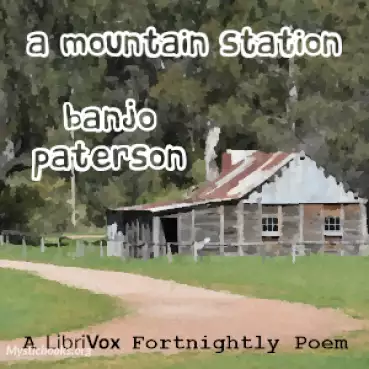
A Mountain Station
The Man from Snowy River and Other Verses (1895) is the first collection of poems by Australian poet Banjo Paterson. It was released in hardback by Angus and Robertson in 1895, and features the poet's widely anthologised poems "The Man from Snowy Riv...
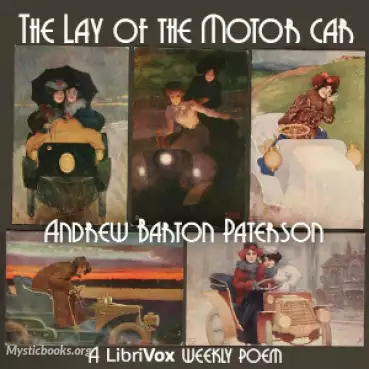
The Lay Of The Motor-Car
This Weekly Poem is taken from Saltbush Bill, J.P., and Other Verses by A. B. (Banjo) Paterson.
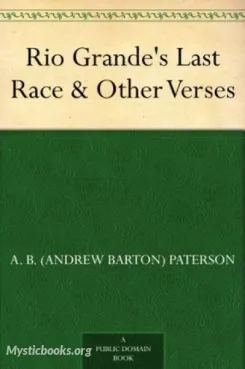
Rio Grande's Last Race, and Other Verses
Ride along with the cowboys and bushmen of Australia's outback in Andrew Barton Paterson's classic collection of poems, Rio Grande's Last Race, and Other Verses. Rio Grande's Last Race, and Other Verses is a collection of poems by Australian poet An...
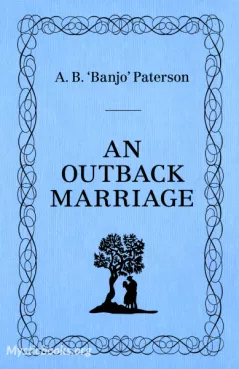
An Outback Marriage
Imagine being forced to marry a stranger in the middle of the Australian outback, surrounded by nothing but red dust and wild animals. An Outback Marriage by Andrew Barton Paterson is a classic Australian novel that tells the story of Mary, a young...
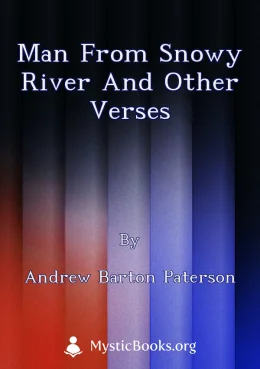
Man from Snowy River and Other Verses
'Man from Snowy River and Other Verses' is a collection of poems by Australian poet Andrew Barton Paterson, known as 'Banjo' Paterson. This collection explores themes of Australian rural life, the rugged landscapes of the Outback, and the adventures...
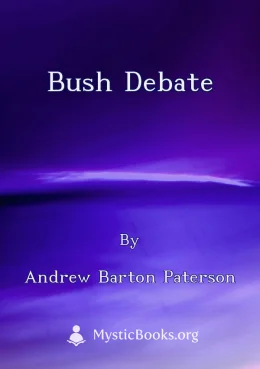
Bush Debate
This collection presents the 'Bush Debate,' a series of satirical poems written by Andrew Barton Paterson and other notable Australian poets in the early 1890s. Published originally in *The Bulletin*, these poems, often contentious in nature, explo...
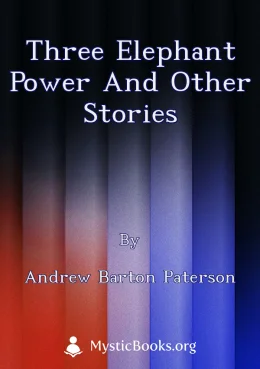
Three Elephant Power and Other Stories
This collection of stories by Andrew Barton Paterson, also known as Banjo Paterson, provides a glimpse into the Australian landscape and culture of the past. Paterson's signature style, known for its humor and storytelling prowess, weaves tales of th...
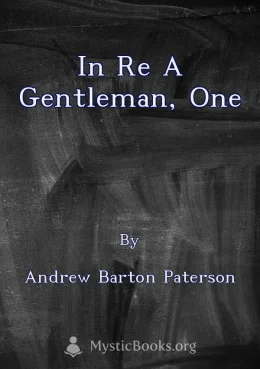
In Re a Gentleman, One
This poem by Andrew Barton Paterson, written under the title "In Re a Gentleman, One," explores the themes of law, justice, and the portrayal of a gentleman accused of misconduct within the legal profession. The poem likely satirizes the legal system...
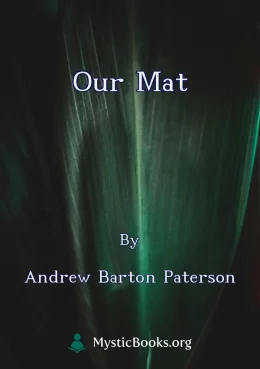
Our Mat
This poem by Banjo Paterson explores the experiences of inmates in the Darlinghurst Gaol, a former Australian prison. It reflects on the harsh conditions and meager rations given to prisoners, and considers the psychological impact of imprisonment.
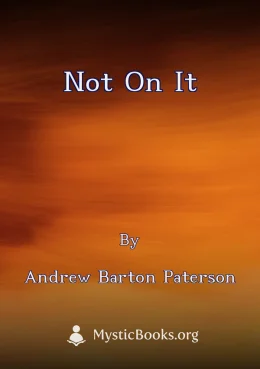
Not on It
'Not on It' is a collection of humorous poems by Australian poet Andrew Barton Paterson. The poems are set in the Australian bush and feature characters such as stockmen, farmers, and swagmen. Paterson's poems are known for their wit, satire, and viv...